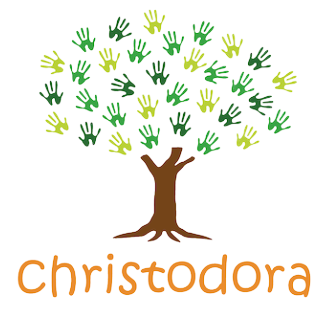Ways to Give
We are grateful for your support. Your monetary donation helps to ensure that any young New Yorker will have an opportunity to grow and thrive through experiences in nature!
Other Ways to Give
In addition to cash donations, there are various ways to support Christodora's future, including bequests, deferred or planned gifts, or securities. Your financial advisor can help you determine the best way to ensure that generations to come will have opportunities to connect with nature while achieving your financial and estate planning goals.
Contact us for more information:
You can reach her at development@christodora.org or call (212) 371-5225
Christodora’s Federal Tax ID Number: 13-5562192
Mailing address:
Christodora
1 East 53rd Street, 6th Floor
New York, NY 10022
Gift of stock
Giving a gift of stock is a wonderful way to unlock extra value to support the mission of Christodora. The financial benefits to you are twofold. First, you avoid the capital gains taxes you would have to pay if selling these appreciated assets. Secondly, you receive an income tax deduction based on the market value of the gifted stock. For stock transfer instructions, Alexis Sanborn alexis@christodora.org or call (212) 371-5225.
Donor Advised Funds
Donor Advised Funds can be used to make one-time or recurring gifts. You will receive an acknowledgment for your gift but not a charitable receipt for tax purposes. This is because it is your contribution to your donor-advised fund that is tax-deductible, not your distribution to Christodora. Please direct your DAF distribution to Christodora, Inc. and mail to Christodora, 1 East 53rd Street, 6th floor, New York, NY 10022
Bequests
A common method of charitable planned giving is through a bequest in your will or trust. A will or trust is the legal expression of your wishes for the disposition of your property to take effect at death. Assets disposed of through a trust do not pass through the estate of the deceased and, thus, are not subject to the probate process, which can be lengthy and/or complicated. Beneficiaries (the heirs who receive the bequests or trust assets) are the individuals and organizations especially important to you. The estate planning instrument (will or trust) can designate a portion or all of the assets as a fixed amount, a percentage, or real or personal property.
Gift of retirement plan assets
Retirement plan assets are an excellent choice to fund a charitable gift to Christodora upon your death. If you leave your traditional IRA, 401k, 403b or other qualified retirement plan assets to anyone other than your spouse, the individual beneficiary will have to pay income tax on the funds received. By naming Christodora as the beneficiary of your retirement plan, the full amount of your retirement assets will benefit Christodora. Also, for those reaching age 70½, gifting the Required Minimum Distribution through a rollover is another way to support Christodora through a retirement asset.
Steady income for life: the charitable gift annuity
With a charitable gift annuity, a sum of money or certain other property is given to Christodora in return for fixed annual payments for you (and your spouse, if you wish). Gift annuities are especially attractive for older people since payments are larger for those at older ages. If you have property (such as securities or real estate) that has increased in value, consider using it to fund a charitable gift annuity. The capital gains taxes which would be due if the property were sold, can be deferred, or partially avoided, provided you have owned the property long enough for it to qualify as long-term property. An income tax deduction is allowed in the year the gift is made. It is based on the age(s) of the person(s) receiving the income, the frequency of payments, and other factors.
Charitable trust
You can make a gift today and retain annual income for the remainder of your life or another period you choose through charitable remainder trusts and other similar gift plans. These plans also yield an income tax deduction in the year the gift is completed. They may be used effectively in planning for retirement, caring for the elderly, or providing funds for educational expenses for children, grandchildren, or other loved ones.
*Your donation is tax-deductible to the extent allowable by law.
Donation List
As a small non-profit, monetary and in-kind donation of materials and equipment can go a long way in helping to support our students who participate in our programs, as well as serve to better our facilities at the Manice Education Center. If you are interested in supporting our work through an in-kind donation, here is a wishlist of items. Please email development@christodora.org to coordinate.
Hiking Boots
Water shoes
Winter hats, mittens, coats
Blankets
Camp stoves

